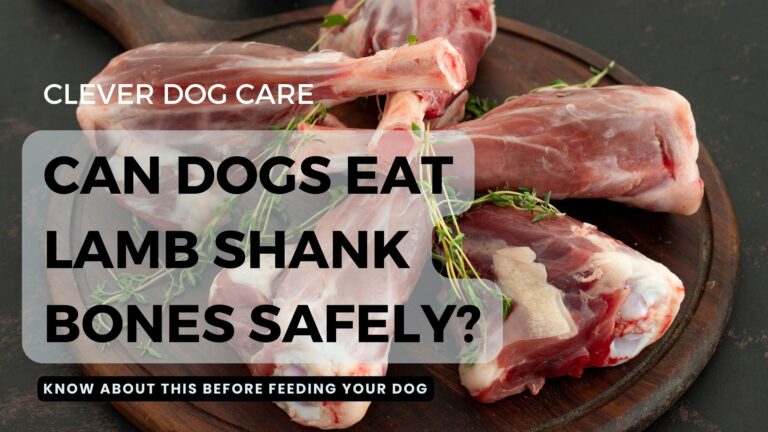Can Dogs Eat Chicken Heart? A Detailed Study

Introduction
Feeding our beloved dogs a nutritious and balanced diet is crucial to their overall well-being and longevity. As responsible pet owners, we are always seeking ways to enhance their diet and provide them with the best possible nutrition. One food that often raises questions is chicken hearts. Can dogs eat chicken hearts? Are they safe and beneficial? In this comprehensive guide, we will explore the topic of dogs eating chicken hearts, including their nutritional value, health benefits, safe feeding guidelines, and how to introduce them into your dog’s diet.
Nutritional Value of Chicken Hearts for Dogs
Chicken hearts are a nutrient-dense food that can provide various essential nutrients for your furry friend. These small organ meats are rich in protein, which is essential for the growth, repair, and maintenance of your dog’s body tissues. Furthermore, chicken hearts are a source of high-quality amino acids, the building blocks of protein, which are necessary for optimal muscle function and development.
In addition to protein, chicken hearts contain essential vitamins and minerals that contribute to your dog’s overall health. They are a good source of essential vitamins, including vitamin A, B vitamins (such as B12 and folate), and vitamin C. These vitamins play vital roles in supporting your dog’s immune system, promoting proper cell function, and maintaining healthy blood cells.
Chicken hearts are also packed with minerals like iron, zinc, and selenium. Iron is necessary for the formation of red blood cells and maintaining healthy oxygen transport in the body. Zinc is crucial for a strong immune system and skin health, while selenium acts as an antioxidant, protecting cells from damage caused by free radicals.
Additionally, chicken hearts contain fatty acids, such as omega-6 and omega-3 fatty acids, which can contribute to your dog’s healthy skin and coat. These fatty acids play a role in reducing inflammation and promoting overall cardiovascular health.
Health Benefits of Feeding Chicken Hearts to Dogs
Including chicken hearts in your dog’s diet can offer several health benefits. One notable advantage is their potential positive impact on heart health. Chicken hearts are an excellent source of taurine, an amino acid that plays a crucial role in maintaining a healthy cardiovascular system. Taurine deficiency in dogs has been linked to certain heart conditions, making it even more important to include taurine-rich foods like chicken hearts in their diet.
Furthermore, the abundance of essential vitamins and minerals found in chicken hearts can contribute to the overall well-being of your dog. From supporting a strong immune system to promoting healthy skin and a shiny coat, these nutrients play integral roles in maintaining optimal health.
Safe Feeding Guidelines for Chicken Hearts
When it comes to feeding chicken hearts to your dog, there are a few important factors to consider. One decision you’ll need to make is whether to feed them raw or cooked. Raw feeding enthusiasts argue that raw chicken hearts retain more nutrients and are closer to what a dog would eat in the wild. On the other hand, cooked chicken hearts can provide a safer option by reducing the risk of potential bacterial contamination.
If you decide to feed your dog raw chicken hearts, it’s crucial to handle them with the same food safety precautions you would use for any raw meat. Make sure to purchase high-quality, fresh chicken hearts from reputable sources, store them properly, and wash your hands and any surfaces that came into contact with the raw meat.
If you choose to cook the chicken hearts, avoid using additional ingredients like seasoning or spices that may be harmful to dogs. Boiling or lightly sautéing the hearts can help retain their nutritional value while ensuring they are safe for consumption.
In terms of portion sizes, it is essential to consider your dog’s size and individual needs. As a general guideline, chicken hearts can be served as treats or incorporated into meals in moderation. Consult with your veterinarian to determine the appropriate serving size for your dog’s specific requirements.
Introducing Chicken Hearts into a Dog’s Diet
When introducing chicken hearts into your dog’s diet, it’s important to make any dietary changes gradually. Start by offering a small amount of cooked or raw chicken hearts mixed with your dog’s regular food. Monitor your dog’s digestion and overall well-being during this transition period. If any adverse reactions occur, such as gastrointestinal upset, consult with your veterinarian.
To make chicken hearts a part of your dog’s regular meals, consider mixing them with other ingredients that are safe and nutritious for dogs. You can prepare homemade meals, combining cooked chicken hearts with appropriate vegetables, such as carrots or green beans, and carbohydrates like rice or sweet potatoes. Alternatively, you can add them as a topper to your dog’s commercial dog food to provide an extra boost of essential nutrients.
Frequently Asked Questions about Dogs Eating Chicken Hearts
Q: Can all dogs safely consume chicken hearts?
While chicken hearts are generally safe for most dogs, individual sensitivities and allergies can vary. Always introduce new foods slowly and monitor your dog for any adverse reactions. If you have concerns about your dog’s specific dietary needs, consult with your veterinarian.
Q: How often should chicken hearts be fed?
Chicken hearts can be offered as treats or included in meals occasionally, as part of a varied and balanced diet. The frequency of feeding chicken hearts should depend on your dog’s overall diet and the recommendation of your veterinarian.
Q: Can chicken hearts replace regular dog food?
While chicken hearts are a nutritious addition to your dog’s diet, they should not replace a complete and balanced dog food. Consult with your veterinarian to ensure that your dog’s nutritional needs are met through a well-rounded diet.
Conclusion
Dogs can safely eat chicken hearts and benefit from the nutritional value they offer. Rich in protein, vitamins, minerals, and fatty acids, chicken hearts can provide various health advantages, such as improved heart health, enhanced coat and skin conditions, and a strengthened immune system. When feeding chicken hearts to your dog, follow safe feeding guidelines, consider individual dietary needs, and introduce them gradually. By incorporating chicken hearts into your dog’s balanced diet, you can provide them with an additional source of essential nutrients and contribute to their overall health and well-being. As always, consult with your veterinarian for personalized recommendations for your furry friend’s specific dietary requirements.






